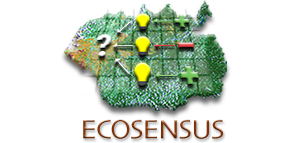About

ECOSENSUS was an e-Social Science project funded by the ESRC (2005-2007). It built on, and involved members of, the Guyana Darwin Initiative Project. The context for environmental decision making was provided by the Makushi tribal region, situated in the Rupununi River catchment, Guyana, which is the size of S.E. England and contains one of the highest diversity of animal and plant species in the world. This region is also under intense pressure to expand the exploitation of its natural resources, including timber, gold, and commercially viable fish species. The Guyana Darwin Initiative Project is developing geospatial and socio-ecological databases and models as baseline data for monitoring and planning in the region. The challenge for the Darwin Project is to produce a monitoring and management plan that will allow the sustainable exploitation of these resources while directly benefiting the long-term interests of the local Makushi community.
The project objectives were:
- To develop a distributed computational infrastructure that extends conventional geographical information systems functionality with support for continued collaborative sensemaking: analysis, discussion, conceptual modelling and commitment to action on behalf of vulnerable communities in endangered ecosystems; and
- To develop the capacity for such distributed, spatial decision-support both within the UK and at international level through training and an on-line distance-learning, open-source short-course (contributing credit points towards at least two existing OU postgraduate programmes and similar programmes at the Royal Holloway College, University of London and the University of Guyana).
The project used Critical System Heuristics and Soft Systems Methodology. ECOSENSUS integrated a state of the art Geographical Information System (uDig) with the Compendium concept mapping tool in order to assist the Makushi Amerindian tribespeople, who live in the Rupununi region of Guyana, to better negotiate, understand and discuss their natural resource conservation and livelihood improvement needs, by providing distributed decision-making support.
Publication
Berardi A., Bachler M., Bernard C., Buckingham Shum S., Ganapathy S., Mistry J., Reynolds, M., and Ulrich W (2006). The ECOSENSUS Project: Co-Evolving Tools, Practices and Open Content for Participatory Natural Resource Management. Second International Conference on e-Social Science. 28-30 June 2006, Manchester, UK.